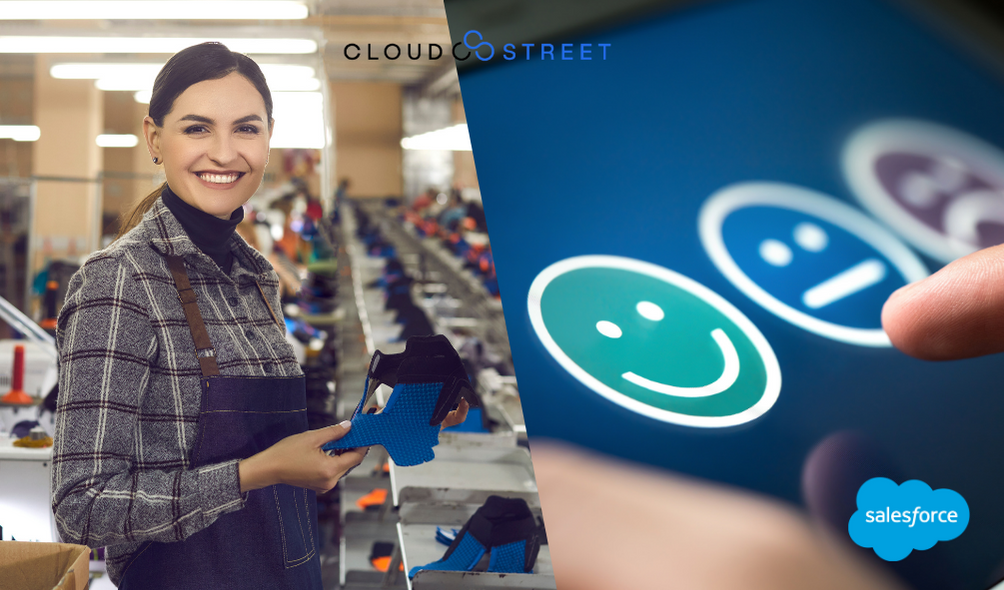
It’s no secret that the retail sector has found it necessary to focus on boosting the customer experience or CX for everyone they do business with. However, CX is not just for retailers anymore. You’ll find that as companies commodify their products, there is a growing need to harness CX among members of the manufacturing sector too. According to a survey from Salesforce, approximately 86% of manufacturers report that they think they can competitively distinguish themselves from rivals by improving their customer experience.
Reasons for the Rising Importance of the Manufacturing Customer Experience (CX)
Essentially, there are three chief reasons why manufacturers are starting to embrace the CX:
- There is a service factor, also known as the “servitization” of products that is transforming the relationship between manufacturers and customers. Businesses are no longer content to consider a sale as merely being a one-time transaction. Indeed, the notion of selling products as a service itself is prompting companies in the manufacturing space to remain engaged with their customers, instead of stopping communication after they’ve sold them a product.
What’s called for is a system to help them keep customers updated with new information about their items. Part of this involves letting customers easily discover new products, and use self-service features to learn and engage with your offerings. Another key ingredient is to invest in a service, such as Salesforce, to connect with customers more effectively and consistently. After all, the numbers don’t lie, so you’re advised to use all the marketing automation tools at your disposal.
- As noted, business-to-business buyers now prefer to have a consumer-style experience when shopping for products too. When your customers grow displeased with your brand and the consumer experience, it’s a trivial matter for them to locate a competing manufacturer who sells the same types of items, with a few taps of their smartphone. Accordingly, B2B buyers are demanding a good user experience (UE) and user interface (UI). If you aren’t paying close attention to the experiences you’re providing through your website and social channels, you’re doing your company a grave disservice.
With a focus on the customer experience, you can give each person an instant response when they request service. You’ll also be in a position to offer purchasers of your manufactured products support and maintenance just when they need it.
- To remain competitive in an increasingly crowded market, it’s incumbent on manufacturers to differentiate themselves from rivals in terms of the experience of doing business with them. It’s no longer enough to try to get by offering the best products possible and developing an outstanding, reputable brand. Your customers will expect and deserve a better experience.
Delivering this to them will certainly help boost revenue. But by focusing on the CX, you can also anticipate that your team will make operations run more efficiently, cutting out waste. This occurs naturally when you invest in systems to automate the marketing and sales functions, with analytics to provide support for your next business decisions. Add data streams from Internet of Things or IoT devices and advanced analysis made possible with the help of artificial intelligence and machine learning, you can dramatically improve the customer experience journey.
Addressing the Complexity of Your Manufacturing Customer Experience
If you’ve been involved in the manufacturing space for any significant amount of time, you and fellow stakeholders in your organization are already familiar with just how complex the journey it is for each customer to take before finally purchasing items from you.
One reason has been the vast array of middlemen that tend to get in the way. Even the most powerful manufacturers often did not know exactly who their final customers were, let alone the uses to which they put their various products. But that’s part of the past. In the information age, anyone with internet access can access the supply chain more readily. Therefore, you need to spend time and attention on improving your approach to center around your B2B customers’ journey.
To that end, some crucial options for you to consider include:
* Deploy more assets to build an “intelligent” customer service:
It costs a lot of time and other resources for manufacturers to provide traditional customer service, such as setting up a network of field agents and training them in your ways, and building contact centers. At the same time, you have to relentlessly focus on speeding up orders and making each transaction more accurate. Most customer service complaints have to do with resolving their requests, and all of the time and effort they have to expend on repetitive data entry tasks to finalize orders.
Instead, you’ll want to design a better customer journey experience that values their time and attention. Do this with design experts making a better UE/UI interface. Use the latest digital technology products, such as cloud services, chatbots for customer service reps, mobile device targeting, IoT and artificial intelligence systems. Of course, you’ll also need to deploy analytics, such as through a platform like Salesforce.
* Use smart devices to better connect with your B2B customers:
Whenever possible, use integrated devices such as IoT products. Kone, a Finnish manufacturer, notably added artificial intelligence inside its elevators, along with IoT devices, which allow the elevators to communicate with their data servers.
This enables Kone to understand where each elevator is at any point in time, with data if they are suffering any problems. The treasure trove of information helps Kone predict when customers’ elevators need maintenance. Doing so avoids service interruptions, and makes customers happier with Kone’s products.
The same principle applies to automotive manufacturers. For example, data from each car allows manufacturers to send drivers tips on reducing damage to tires when riding fast over certain types of road surfaces.
Boosting Your Manufacturing Online Presence With a New B2B Customer Portal Designed to Accelerate Sales
CLOUDSTREET has successfully set up B2B stores for manufacturers operating in the consumer goods, IT services and industrial sectors. To enable manufacturers to quickly get up to speed, CLOUDSTREET provides two Accelerator packages, to help you get your online store up and running to start making fast sales.
With a tool such as Salesforce helping you engage more effectively with new customers as well as existing loyal customers, you can anticipate boosting sales, thanks to your customized sales portal.
So, even if you have limited resources to handle Salesforce marketing automation tasks yourself, or to set up and maintain an online store, you can still set yourself apart from competing manufacturers by partnering with the experts at CLOUDSTREET, who have years of experience in implementing effective B2B storefronts online.
More Case Study
CASE STUDY: Commerce Cloud Subscription Management
CLIENT: Manufacturing Company with Software
CHALLENGE: The manufacturer faced several challenges in offering a [...]


